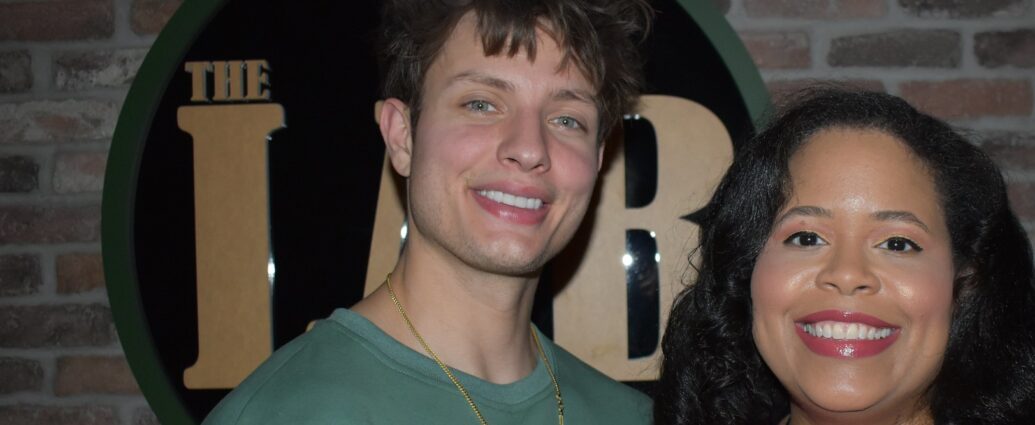Elisabetta Laurence
‘Funny’ is an elusive adjective that is at times paradoxical, mostly subjective, and as difficult to pin down as a tent in the wind.
Like pitching a tent in the wind, the notion of ‘being funny’ begs some questions. Who decides the right place and the right time? Who gets to do it? What do we do if they do it ‘wrong’?
Cue streaming giants like Netflix, who have been awarding comedians their own comedy specials left right and centre, endowing them with our windy tent pegs — but are they getting it right?
The Netflix-Sponsored Downfall of Matt Rife
In early 2023, Matt Rife is living the good life: he’s doing the rounds on TikTok, and having rounds bought for him at comedy clubs all across America.
“Piling ableism onto misogyny is not cool, bro”
Spotlights across the country and our phones illuminate his tall frame, bouncing off strong cheekbones and glistening white teeth, and audiences and app users alike chortle along to his mocking smirk and agile audience interactions.
In November 2023 his Netflix special is released, and he opens it with a story about being served in a Baltimore restaurant by a woman with a black eye. He wonders why the restaurant didn’t place her in the kitchen, to spare customers the insult of having to look at her face but, alas, “I feel like if she could cook, she wouldn’t have that black eye.”
After a beat, Rife tells the audience he was “just testing the waters, seeing if y’all are gonna be fun or not.”
Matt Rife’s Netflix comedy show opened with, “I feel like if she could cook, she wouldn’t have that black eye.” The crowd roared with laughter and Rife has gone viral because let’s face it, misogyny sells, it’s what many men think but daren’t say out loud.
— Dr Charlotte Proudman (@DrProudman) November 23, 2023
Kicking off his show with a domestic violence joke is jarringly distasteful. Following this up by placing any offence directly on the audience’s conscience takes things to the next level of repugnancy. It seems Rife’s 2010 middle-school logic is: if you’re not cool and bro enough to find domestic violence jokes funny, you won’t fit in here – but hey, that’s on you.
The special, and the opening joke in particular, sparked serious backlash online. Rife addressed it via an Instagram story a few days later, urging “offended” viewers to follow a link — sending them to a website selling special-needs helmets.
His suggestion is clear: if you don’t like my joke about hitting women, you surely must have some sort of a cognitive disability.
Needless to say, piling ableism onto misogyny is not cool, bro.
Playing The Comedian ‘Role’
The story is reminiscent of another Netflix-sheltered comedian: Ricky Gervais. He’s released two controversial Netflix specials in the past few years: SuperNature (2022) and Armageddon (2023).
In the former, he joked about trans women raping people in public bathrooms. In the latter, he nicknamed terminally ill children “baldy”. Not all viewers were ecstatic about these ‘jokes’.
Gervais’ general response even pre-empted the backlash, telling the audience immediately after his comments: “these are all jokes, all right? […] I’m playing a role.”
Ricky Gervais could go after the governments, banks, billionaires. The ones causing actual harm to ordinary people all over the world on an unfathomable scale every single day.
But he goes after trans people instead. Yeah Ricky, son, you speak your truth to power. Coward.
— Gobias (@Gobias___) May 24, 2022
As with Rife’s domestic violence routine, the excuse of ‘just joking’ is not valid here. Especially when so many viewers don’t actually find the content funny.
It is an inherent facet of celebrity stardom that you can occupy and present many different versions of yourself to the public. But whichever you choose to project is the persona people will consume and understand in that moment to be true. It doesn’t make any difference if, underneath the coat of shimmery famousness, you’re actually a morally-perfect, people-serving, Malala-level hero. If you’re mocking queer identities and cancer patients in your Netflix special, people will assume that, on some level, you mean it.
And by occupying a large space in the current entertainment sphere — and being paid by platforms rather handsomely for it — you are guaranteeing that people will listen.
Can Comedy Be Offensive? It’s A Fine Art
Comedy is a medium through which individuals, and by extension audiences, can pick apart mainstream structures of belief, and hold people and power to account. As a result, comedians are arguably allowed to explore the boundary between being safe/harmless and provocative/daringly investigative in their humour.
But this doesn’t mean that stepping, leaping, and pole vaulting over the line is okay. Comedians aren’t owed a full and unequivocal hallway pass to saying what they want, how they want, and when they want. It’s a fine art.
Using comedy as a platform to examine taboo subjects is important. But to punch down instead of up? To point and laugh at something as serious as domestic violence, and suggest abstaining makes you ‘no fun’? That’s not okay.
Comedians hold an important weight on their shoulders, and it is important they are held accountable when they mess up.
READ NEXT:
-
MALE REDEMTPION ARC: WHY HOLLYWOOD FORGIVES ABUSIVE MEN
-
YOUTUBE BLOCKS RUSSELL BRAND FROM MAKING MONEY ADMIST ALLEGATIONS
-
NETFLIX WORKERS STAGE WALK-OUT FOLLOWING TRANSPHOBIC COMMENTS
Featured image courtesy of echolalia via Flickr. No changes were made to this photo. Image license available here.


A really insightful article. Thank you.